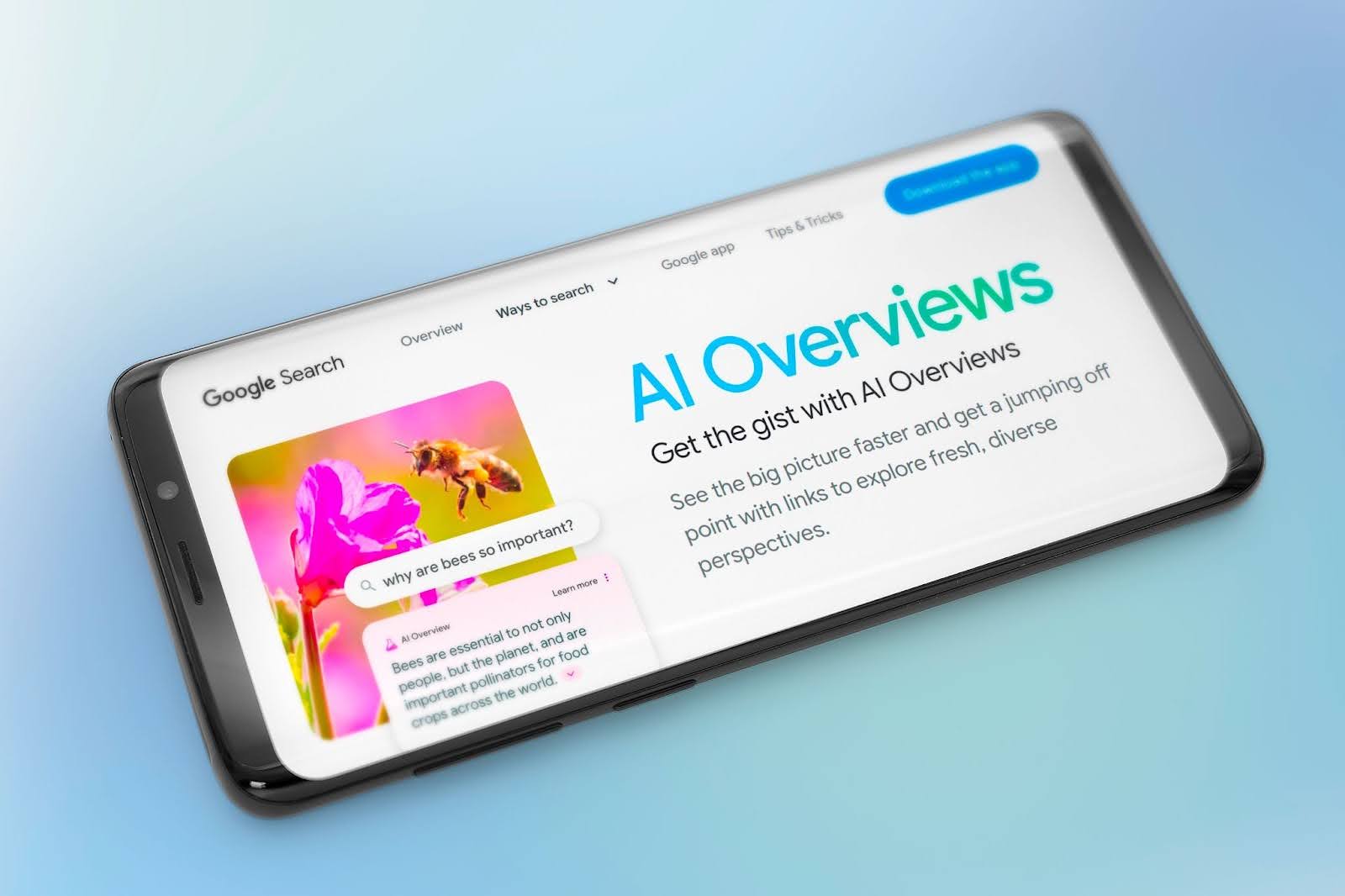Google generative AI in Search and its impact on SEO
July 3, 2024
10 min read
On May 10, 2023, Google announced the integration of artificial intelligence into the search experience. Similar to the experiences already offered by tools like ChatGPT or Gemini, Google is incorporating a user dialogue tool, which is a customized version of Gemini, in Search. AI in Google Search is currently available in the US as a beta version and will most likely be introduced in other countries by the end of 2024.
How the generative AI in Search works
With the introduction of generative AI into the search experience, Google will respond to each question users ask with text and tables created by combining different online resources.
Once Google receives the user’s question, the generative AI searches the web and selects and synthesizes the highest-quality, most accurate, and relevant information to create a tailored answer for the user in the AI Overview section.
This means that users will be able to ask Google questions instead of searching by keywords, and the AI Overviews feature will provide articulated answers with a new type of interface that will include lists and boxes to display products and services.
Users will also be able to chat with Google’s AI to deepen their research and get increasingly specific answers.

Obviously, generative AI in Google Search represents a significant change. Since the questions users can ask Google will change radically, the format of the answers and the indexing of results will also be very different.
How to optimize for Google AI Search?
For these upcoming changes in the search experience, the focus of SEO work should be concentrated on:
Long-tail keywords
Detailed and specific information
Easy readability, brevity, and common language
Inclusion of sources to support the content
Quality content that answers specific questions
Long-tail keywords
The goal of including AI in the Google search experience is to provide specific answers to specific questions. For this reason, a key point in adapting SEO to Google AI Overviews will be to structure web page content to answer specific questions with a significant search volume: the long-tail keywords.
Detailed and specific information
Google has always aimed to provide relevant information to users, and the inclusion of AI adds quality to that goal. Thanks to the new data search experience, Google will favour resources that include details, specific information, and increasingly precise elements in its responses.
Easy readability, brevity, and common language
Most Google users are looking for clear and straightforward answers to questions asked in simple, everyday language. For this reason, Google AI Search will likely favour pages with content structured in a simple and easy-to-read manner to process its responses.
Inclusion of sources to support the authority of the content
As is still valid, even after the introduction of AI into the search experience, the inclusion of links to sources supporting your content, internal links, and everything else that creates a solid structure behind the content of a single page will be rewarded by Google in its indexing process.
The focus on content quality
With the introduction of AI into the Google search experience, many elements will change, but the foundation of what Google rewards by indexing in the top positions will always remain the same: the quality of what is published.
Whether it is an article in the blog section or a web page presenting a specific service, Google will continue to feature in the top search results and in the new AI Overviews pages that provide clear, precise, detailed, and easy-to-read information.


























